Rwanda
An unsuccessful asylum-seeker in the U.K. has voluntarily arrived in Rwanda, an official said.
The man, whose nationality was not disclosed, did not arrive under a controversial deal to deport to Rwanda migrants who enter the U.K. illegally, Alain Mukuralinda, deputy spokesman for the government, told The Associated Press Wednesday.
Arrival in Rwanda
"We received him yesterday and we are taking care of him," he said. "In a few days the asylum-seeker will tell us about his wish either to stay in Rwanda or go somewhere else."
Rwandan authorities will assess his status and decide accordingly, he said.
Last week, the U.K. Parliament approved legislation allowing deportations to Rwanda despite criticism from human rights groups that the plan is inhumane and illegal.
READ ALSO :Rwanda: Inside the Kigali hotel set to receive expelled UK migrants
The legislation, known as the Safety of Rwanda Bill, was a response to a U.K. Supreme Court decision that blocked the deportation flights because the government couldn't guarantee the safety of migrants sent to Rwanda.
After signing a new treaty with Rwanda to beef up protections for migrants, the government proposed the new legislation declaring Rwanda to be a safe country.
Legal Framework and Deportation Policy
Kemi Badenoch, the U.K. business and trade secretary, said the asylum-seeker who chose to leave shows that Rwanda is safe for deportees.
"We should be trumpeting it because one of the big arguments about this scheme was Rwanda wasn't a safe country, and actually people are volunteering to go there," Badenoch told Times Radio. "I know people who go there on holiday, a lot of people have been."
READ ALSO :European leaders laud tougher migration policies but more people die on treacherous sea crossings
The deportee was reportedly paid 3,000 pounds ($3,750) to leave. Badenoch told Sky News there is no "cost-free option" for border control.
The U.K. government hopes the deportations will deter migrants who risk their lives in leaky, inflatable boats in hopes that they will be able to claim asylum once they reach Britain.
The plan has been condemned by both the United Nations' refugee agency and the Council of Europe.
Some rights groups say the way to stop the trafficking is for countries to work together to provide safe and legal routes for migrants, not for countries like Britain to put up barriers and outsource their problem to others. Prime Minister Rishi Sunak said last week that deportation flights would begin in July.





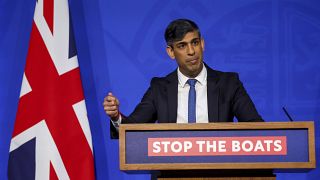
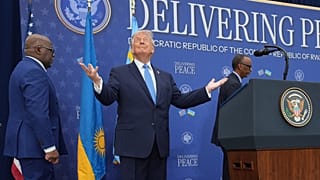
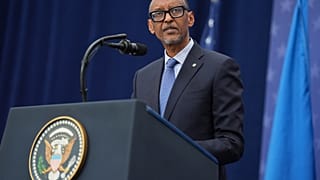

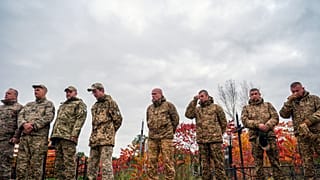
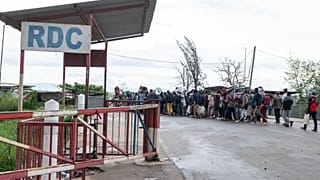

Go to video
9 African migrants died in freezing temperatures near Morocco-Algeria border
Go to video
Ugandan Priest detained by Military amid rising election tensions
01:30
M23 rebels take control of strategic Congo town as peace deal crumbles
01:14
UK sanctions four senior RSF commanders over atrocities in Sudan
Go to video
Ghanaian influencer accused romance scam targeting elderly Americans
Go to video
Six African women break barriers in Forbes 2025 power list